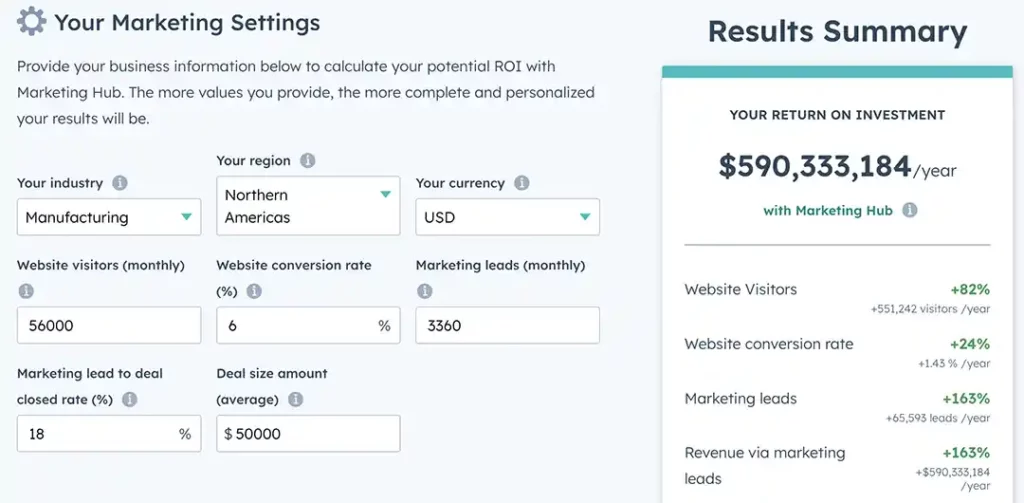Role of Artificial Intelligence in Marketing: Opportunities and Challenges
Learn About The Role of Artificial Intelligence in Marketing: Opportunities and Challenges
In today’s ever-evolving digital world, marketing professionals everywhere are searching for the best tools to help them stay ahead of their competition.
The era of AI is now
Embrace the future of productivity and limitless innovation. We’re building AI into Microsoft Cloud industry models to help industries leverage sales growth quicker—achieve more.
Artificial Intelligence (AI) has become an invaluable market asset due to its ability to automate tedious tasks and provide tailored insights. AI is changing the game in marketing, and all professionals must have a solid grasp of how it works, its advantages, and its challenges.
In this blog post, we’ll take a closer look at how AI, like OpenAI, can be used in marketing, discuss potential opportunities arising from its use and consider key challenges marketers face when implementing AI strategies into their campaigns.
Get ready – after reading this article, you will no longer think, “Where do I start?” but, “How can I maximize my potential?” Let’s dive in!
Artificial Intelligence (AI) in marketing and what it means for companies

Integrating Artificial Intelligence (AI) in marketing strategies revolutionizes the business world by optimizing the customer experience and enhancing data-driven decision-making.
Companies that embrace AI-powered technologies, such as chatbots and predictive analytics, stand to gain significant competitive advantages by efficiently personalizing customer interactions, refining product offerings, and increasing their capacity to understand consumers on a deeper level.
As the digital landscape evolves, businesses cannot overlook AI’s potential to reshape marketing. Companies that adapt and invest in AI-driven marketing technologies today will be better positioned to navigate the challenges of tomorrow, creating lasting value in an increasingly interconnected environment.
Benefits of AI-driven marketing, such as better customer segmentation and targeted advertising
Integrating AI-driven marketing approaches in modern business offers various benefits, particularly enhancing customer segmentation and targeted advertising.
By leveraging artificial intelligence, marketers can analyze vast quantities of customer data more efficiently, segmenting their target audience into specific cohorts based on their preferences, behaviors, and demographics.
This heightened level of precision and customization not only boosts marketing campaigns’ relevance in the eyes of a company’s target audience but also garners significantly improved engagement, conversion rates, and overall return on marketing investments.
AI-driven marketing techniques help brands optimize their advertising strategies by identifying the right messaging, marketing channels, and targeting parameters. This ensures that every marketing dollar spent yields maximum impact on an organization’s bottom line.
The fusion of AI technologies with marketing practices has revolutionized how businesses perceive and interact with their customers, fostering more meaningful engagements and driving tangible success in today’s competitive market space.
Challenges companies face when integrating AI into their marketing strategies, including data privacy compliance.

Integrating AI into marketing strategies presents a unique set of challenges for companies, including ensuring data privacy compliance. With the rapid growth of AI usage in marketing, businesses must remain vigilant in maintaining compliance with GDPR and other data protection regulations.
These regulations aim to protect consumer privacy while addressing the ethical implications of deploying AI in marketing campaigns. Adherence to these rules could result in severe penalties, detrimental to a company’s reputation and financial stability.
Successfully incorporating AI into marketing necessitates significant investments in resources and staff training.
Companies must also tackle data quality and accuracy issues, as AI requires vast information to derive useful insights. Ultimately, striking the right balance between capitalizing on AI-powered marketing advantages and maintaining regulatory compliance is a formidable challenge for today’s enterprises.
How AI is changing the nature of customer engagement and impacting customer loyalty
The rapid advancement of artificial intelligence (AI) is significantly transforming the landscape of customer engagement, paving the way for enhanced loyalty and stronger connections between businesses and their clients.
Companies can provide quick and personalized customer support by utilizing AI-powered tools like chatbots and virtual assistants to address their expectations and need in real-time.
This streamlined approach to customer service saves valuable time and resources. It helps cultivate a deeper sense of loyalty among clients, who are more likely to continue supporting businesses that prioritize their satisfaction.
Implementing AI-driven analytics enables companies to gain valuable insights into customer preferences and behavior, allowing them to craft highly targeted marketing strategies and customized offerings.
By embracing the immense potential of AI in shaping the future of customer engagement, businesses can unlock new avenues for fostering loyalty and elevating the overall customer experience.
Best practices for leveraging AI to maximize returns on your marketing investments

In today’s rapidly evolving digital landscape, leveraging artificial intelligence (AI) to optimize your marketing investments is essential for maintaining a competitive edge.
By incorporating AI into your marketing strategy, you can make smarter, more informed decisions that maximize your returns, drive higher engagement, and deepen customer connections.
AI solutions can analyze vast amounts of data to uncover patterns, trends, and insights that human analysts would likely miss, enabling your marketing team to better cater to your target audience. Investing in AI-driven technologies like chatbots and recommendation engines can help personalize your interactions with potential customers while streamlining their journeys from awareness to action.
Adopting AI-based solutions can also improve the overall efficiency of your marketing campaigns with tools for automated targeting, A/B testing, and real-time reporting, enabling you to allocate your resources more effectively and achieve better outcomes.
To reap AI’s benefits, it is crucial to collaborate with skilled professionals, prioritize continuous learning, and always remain receptive to new technologies and advancements.
The future outlook for AI in the marketing landscape
As we venture into an era dominated by artificial intelligence, the marketing landscape is expected to undergo significant transformations. Integrating AI into marketing strategies has revolutionized how businesses engage with their target audiences.
Shortly, we can anticipate even greater advancements in AI-driven marketing techniques that will enable organizations to create more personalized and effective campaigns in real time.
Enhancements in data analysis and interpretation capabilities will empower marketers to understand consumer behavior and preferences better, further enhancing their ability to create tailored content for different market segments.
We foresee improved automation tools that will greatly optimize the allocation of resources and reduce human intervention, allowing marketing teams to focus on higher-level strategies and objectives. The future outlook for AI in the marketing landscape is incredibly promising, with limitless potential for innovation and growth.
Microsoft’s use of AI tools.
Microsoft is a leader in developing and utilizing Artificial Intelligence (AI) tools for marketing purposes. Microsoft has harnessed the power of AI to create solutions that make it easier for companies to provide quick and personalized customer service, gain valuable insights into customer preferences and behavior, automate targeting, A/B testing and real-time reporting, and more.
By leveraging the immense potential of AI, Microsoft enables companies to create meaningful experiences for their customers and unlock new opportunities in a rapidly evolving digital landscape. With its comprehensive suite of AI-driven solutions and expert support, Microsoft is leading the way in helping businesses make smarter marketing investments that maximize returns.
Google’s new Bard AI platform
Google is revolutionizing the marketing landscape with its new AI-driven platform, Bard. The platform utilizes advanced machine learning algorithms to help marketers automate and optimize their campaigns by providing detailed insights into customer behavior and preferences.
With its cutting-edge technology, Bard enables businesses to create more personalized customer experiences while driving improved ROI from their marketing efforts. It also helps marketers allocate resources more effectively and reduce human intervention by automating tasks like targeting, A/B testing, and reporting.
The platform is designed to simplify the entire marketing process by integrating seamlessly with existing applications and platforms such as Google Ads, Google Analytics, and DoubleClick Bid Manager. With Bard, marketers can now access powerful AI tools to help them optimize their campaigns for maximum impact.
What are SaaS companies using generative AI?
Generative AI in SaaS companies has revolutionized how businesses interact with customers and target audiences. By utilizing the power of artificial intelligence, these companies can create highly personalized user experiences that result in improved customer engagement, better customer retention, and a higher return on investment.
Adobe is one of the SaaS companies leveraging generative AI technology.
Adobe is one of the SaaS companies leveraging generative AI technology to automate its content creation process.
Adobe’s Sensei AI platform utilizes natural language processing and machine learning algorithms to generate custom content for online marketing campaigns automatically. This helps marketers save time and resources by automating mundane tasks like blog post writing, product description creation, and email generation.
Salesforce is another SaaS company using generative AI.
Salesforce is another SaaS company using generative AI to improve marketing automation. The company’s Einstein AI platform helps marketers understand customer behavior better by providing detailed insights into customer preferences and interactions. It then uses this data to automatically generate more personalized emails and content, increasing engagement rates while reducing manual effort.
HubSpot AI.
HubSpot also uses generative AI to help its customers create effective marketing campaigns. The company’s HubSpot Ads tool uses machine learning algorithms to study user behavior and suggests automated targeting strategies based on customer profiles. This enables businesses to create more efficient ad campaigns that yield higher returns at lower costs.
Oracle uses AI-driven technologies.
Oracle uses AI-driven technologies to provide personalized recommendations and insights for its customers. Oracle CX Cloud Suite utilizes predictive analytics algorithms to analyze customer data and suggest tailored content recommendations based on individual customer needs or interests. This helps marketers deliver highly tailored customer experiences while increasing campaign conversion rates and ROI.
5 Ways to Use AI for your business with marketing
Embracing artificial intelligence (AI) can significantly enhance business operations and boost productivity. By implementing AI solutions, you can streamline customer service and communication, gaining insights into customer preferences through chatbots and virtual assistants.
Discover the power of AI in marketing with these five ways to use it for your business.
- Automated Targeting: Using AI-driven tools like HubSpot Ads, marketers can study user behavior and craft personalized targeting strategies that will yield higher returns at lower costs.
- Content Creation: With Adobe Sensei or Oracle CX Cloud Suite, you can automate content creation with natural language processing and machine learning algorithms to generate custom content quickly and effectively.
- Optimization: Utilize cutting-edge AI technology to get detailed insights into customer behavior and preferences so you know how best to optimize your campaigns for maximum impact on ROI and engagement rates.
- Personalization: Maximize customer satisfaction by providing highly tailored user experiences using predictive analytics algorithms that suggest custom recommendations based on individual needs or interests.
- Reporting & Analytics: Reduce human intervention by automating tasks such as targeting, A/B testing, and reporting with powerful AI tools that analyze data faster than ever. This allows you to understand customer behavior better, optimize campaigns for maximum returns, and increase ROI.
By leveraging AI technology, businesses can improve marketing automation and gain access to powerful insights that enable them to provide highly tailored customer experiences while increasing campaign conversion rates and ROI. Implementing AI in your marketing strategy can significantly enhance your operations and boost productivity while saving time and money. So what are you waiting for? Start using AI today!
AI also provides valuable predictive analysis to forecast consumer behavior, trends, and market fluctuations, helping you make informed strategic decisions. Moreover, marketing efforts can be optimized through AI-powered tools that analyze consumer data patterns and customize your campaign to target specific customer groups.
AI can play a critical role in improving internal business processes, automating repetitive tasks, and refining workflows to save time and resources, ultimately driving innovation in your organization.
AI is changing the way companies approach marketing and customer engagement. The benefits to taking advantage of this technology are numerous – from better customer segmentation and targeted advertising to improved customer loyalty and greater efficiency in decision-making – but challenges remain, such as complying with data privacy regulations.
To maximize returns on their marketing investments, companies should consider following best practices, such as having a strategy before investing resources in AI-powered solutions.
As numerous organizations continue deploying AI in their marketing operations, it is clear that this technology will play an increasingly important role in the future of marketing. Companies looking to use these new technologies can start by utilizing the 5 simple steps outlined above.
Now is the time for big and small businesses to implement AI-powered solutions – because the sooner you start, the sooner you’ll be reaping the benefits! Want to start using AI for your business now? Grab our sales tool for boosting conversions and sales.
Conclusion
Artificial Intelligence (AI) transforms how businesses market their products and services by providing valuable insights into customer behavior while streamlining operations with automation solutions. We discussed the definitions of artificial intelligence and explained what artificial intelligence can do for businesses to increase productivity.
As we venture into an era of AI-driven innovation, companies want to leverage its immense potential to create unique customer experiences while driving improved ROI on marketing investments.
With its immense potential, AI is helping to redefine the marketing landscape as we know it. Microsoft and Google are leading the charge in this field with their cutting-edge AI platforms that enable businesses to create smarter campaigns and unlock new opportunities in the digital world.
It’s an exciting time for marketers who can use this technology and revolutionize their strategies for maximum impact.
General FAQs
What is Artificial Intelligence (AI) for Marketing?
Artificial intelligence is a technology that enables machines to learn from data and experiences and use this knowledge to make decisions, solve problems, and complete tasks. AI systems use algorithms and programming to carry out complex tasks, such as recognizing patterns in large amounts of data, predicting customer behavior and preferences, or automating repetitive tasks. AI has the potential to revolutionize how businesses operate by providing valuable insights into customer behaviors and preferences while streamlining internal processes.
How do companies benefit from using AI?
Companies can leverage the power of AI to gain deeper insights into customer behavior and preferences, improve decision-making accuracy, optimize marketing campaigns for maximum impact, automate mundane tasks, and streamline internal business processes. Additionally, AI provides companies with predictive analytics capabilities to forecast consumer trends and market fluctuations, which can help inform strategic business decisions.
What are some best practices for implementing AI solutions?
Businesses must have a strategy before investing resources into AI-powered solutions. Businesses should ensure compliance with all relevant data privacy regulations. Organizations should also establish meaningful metrics for measuring their success in leveraging AI technologies.
What steps should businesses take to start using AI?
Companies looking to leverage the power of artificial intelligence should start by assessing their needs and understanding what specific solutions they require to solve the pain points they face. They should then identify the right vendors or providers who offer the required solutions depending on their budget constraints or scale of operations.

